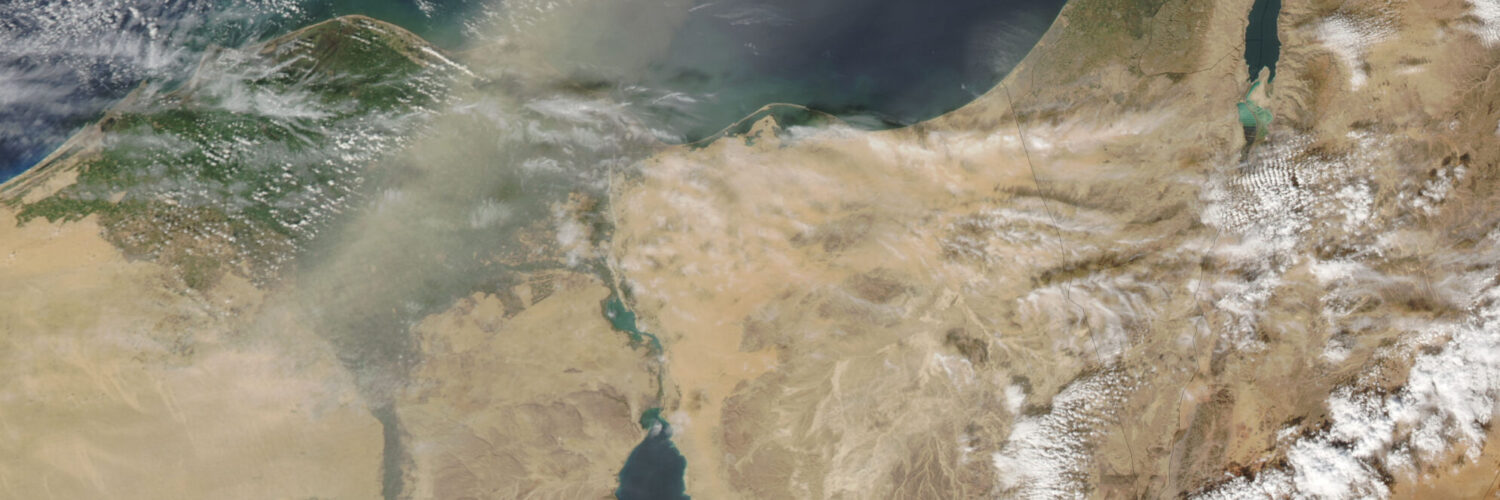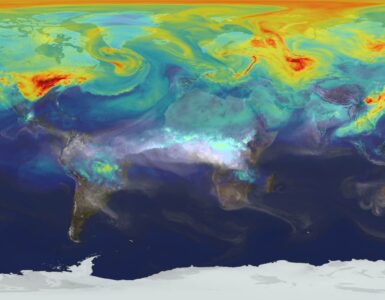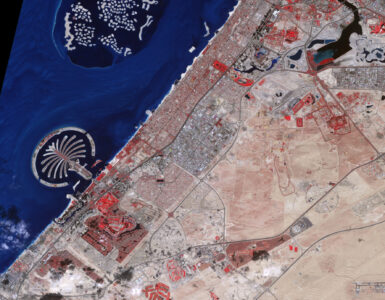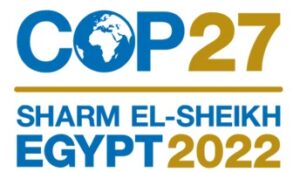
The COP-27 in Sharm-El-Sheikh (Egypt)
The UNFCCC Conference of the Parties (COP) was held in November 2022 at Sharm-El-Sheikh in Egypt. Around 40,000 people met to discuss their achievements, ambitions and goals in the context of the Paris Agreement. Five takeaway messages has been identified from the two-weeks-event:
- Establishing a dedicated fund for loss and damage
- Maintaining an intention to keep 1.5°C within reach
- Holding businesses and institutions to account
- Mobilizing more financial support for developing countries
- Making the pivot toward the implementation
More in-depth information about the COP-27 takeaways can be found under Five Key Takeaways from COP27 | UNFCCC
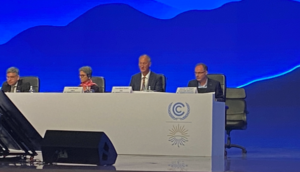
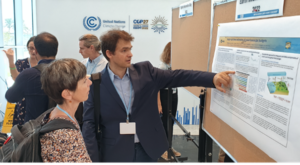
The two weeks of the UNFCCC COP are organized as such that during the first week of the UNFCCC COP the sub-ordinated bodies of the COP – the Sub-ordinated Body for Implementation (SBI) and the Sub-ordinated Body for Science and Technical Advice (SBSTA) – convene and prepare the negotiations of the Parties providing further implementation and technical advice including decisions and recommendations.
An important outcome of SBTSA was the decision to forward the new GCOS Implementation Plan on COP level where it has been adopted. The GCOS Implementation Plan contains the definition and requirements of the Essential Climate variables. Each version includes the needed actions for the upcoming years.
During the opening session of the SBSTA meetings, the French delegation on behalf of the CEOS chair (CNES) provided the yearly status of achievements of CEOS and CGMS which had been prepared by the Joint CEOS/CGMS Working Group on Climate (WGClimate) with input by the CEOS and CGMS members. SBSTA well acknowledged the work of CEOS and CGMS. Note that the CEOS Global Stocktake Strategy provides a guideline for collaboration within CEOS with regard to the Paris Agreement and the Global stocktake.
Since various years the Earth Information Day (EID) is part of the SBSTA consultations. Parties are informed about the opportunities of Earth Observations and its tremendous advantages to make use of Earth Observation in achieving the goals of the Paris Agreement. At COP-27 the EID was opened with a report about the state of the climate given by WMO. The topics mitigation, adaptation, and loss and damage were addressed during three panel sessions drawing also the attention to Ocean observations and Early Warning Systems (EWS). The chair of WGClimate joined the panel for mitigation to respond to Parties with regard Satellite-based observations and their capabilities. It is worth to note that that delegates from other CEOS agencies did also join the different panels so that in general CEOS had been well represented.
Before, in parallel and after the panel sessions, a well-visited poster exhibition providing more detailed information allowed more detailed information for the Parties. WGClimate submitted two posters providing in one poster a more general overview what for CEOS and CGMS stand in the context of the Paris Agreement. Another poster was dedicated to mitigation including also the activities of the systematic observation community. It is worth to note that the poster session was also used by several CEOS agencies to present different facets such as top-down Greenhouse Gas observations and bottom-up approaches with respect to above ground biomass and others. More detailed information about the Earth Information Day can be found at Earth Information Day 2022 | UNFCCC (including posters). It relates also to the Earth Information Days held at former COPs.
Finally, it shall be noted that the COP is also an event with a large area of different exhibition booths – National and by organizations. During the whole event, there were several dedicated sessions in these booths with regard space observations allowing in-depth discussions and awareness. CEOS agencies were also very active to organize and contribute to several events making clear that Earth observation is a tremendous asset not only for research but also for monitoring and early warning.

Albrecht von Bargen,
Chair Joint COES /CGMS Working Group on Climate 2020-2022

